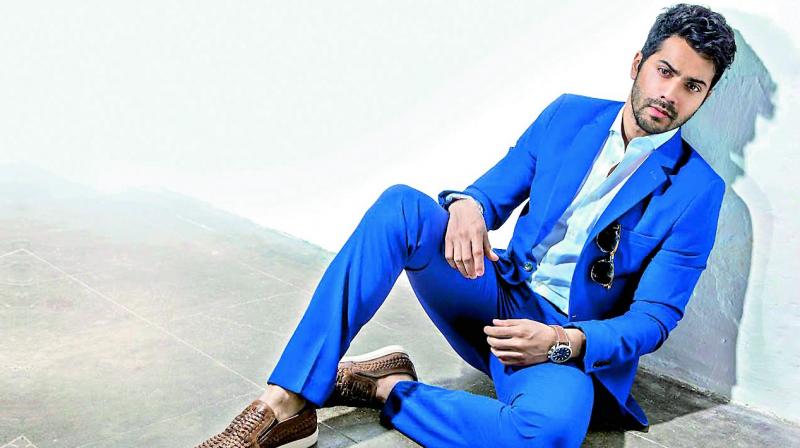If I believe in a film, I reduce my fees, says Varun Dhawan

Varun Dhawan attained stardom almost overnight after the release of his debut film, Student of the Year. Since then, he’s tried to strike a balance between commercial and parallel cinema, interspersing films like Main Tera Hero and Judwaa 2 with Badlapur and October. Ahead of the release of the film Sui Dhaaga, in which he plays a small-town tailor, the actor sits down for a chat about his choice of films, his target audience, the nepotism debate and more.
You’ve done several mass-entertainers so far. How difficult is it to step out of your comfort zone?
It’s a huge challenge. When I’m not removing my shirt and not dancing, people may not come to watch my film, because that’s what they expect of me. But I also feel they come to the theatre to be entertained, and my aim has always been to entertain my audience.
Do you think Sui Dhaaga is meant for a niche audience?
Sui Dhaaga is meant for a wide audience because it’s a film about a common man. It’s a very credible film and we are happy with the way it has shaped up. It’s a family film, and it gives me great joy to be a part of it.
Are you making a conscious effort to do more family dramas?
I will always do films that are meant for a family audience. I may do some young films with cheeky jokes, but I will never cross the line that makes the audience uncomfortable. I mostly focus my attention on the family audience.
Are you driven by money?
Money has never been a deciding factor for me. If I believe in a film, I reduce my fees and if I know a film is a big commercial entertainer, then I charge the amount I think I deserve. I never let go of a film if I feel the money is not enough.
Do you think doing October was the right move? That film got mixed responses.
For people who have liked October, the film will stay with them forever. It's my most critically-acclaimed work yet, and I got what I wanted out of it. I didn’t expect to get some crazy numbers at the box office. It’s important for an actor to know his film, and to able to different kinds of films. Why are we holding ourselves back? What matters is what people remember of you years down the line.
Do you watch your own films and criticise your work?
When I watch my own films, I think of all the things I could have done differently. But I feel the audience is my biggest critic. What they say is all that matters. When a film releases, it’s the audience that decides its fate.
How do you feel about your stardom?
It’s a tag that changes from Friday to Friday.
People say you’re the next Salman Khan.
He is a legend, how can you compare me to him? I have a long way to go.
Are you tired of the debate about nepotism in the film industry?
I am not tired, but there’s nothing I can do about it. I know there was a point that needed to be made, but what change has come of it? The discussion is done, now what? Everybody has answered this question – and it’s just used as a headline. At the end of the day, I’m doing films like October, in which 17 newcomers were launched. It doesn’t matter what people say, only their actions matter. As an actor, I will always want to work with the most talented people out there.
You have an MBA. Does that help you understand film production?
I know how a film is made, and how it’s financed. The revenue that a film generates cannot be gauged by its theatrical returns alone. You also have to take into account the satellite rights, music rights, and digital rights, because those are also revenue sources. Judwaa 2 is my highest rated film on TV, and October is my highest rated film on digital platforms. Different mediums have different audiences.

